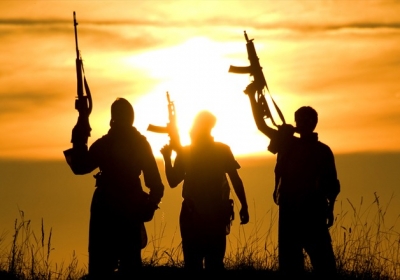ISIS presence in Pakistan threatens stability of Central and South Asia: Report
By IANS | Updated: November 21, 2025 21:15 IST2025-11-21T21:13:11+5:302025-11-21T21:15:14+5:30
Kabul, Nov 21 The recent killing of ISIS-Khorasan (ISIS-K) commander Burhan 'Zaid' in Pakistan offers clear evidence of ...

ISIS presence in Pakistan threatens stability of Central and South Asia: Report
Kabul, Nov 21 The recent killing of ISIS-Khorasan (ISIS-K) commander Burhan 'Zaid' in Pakistan offers clear evidence of Daesh's presence in the country, thus threatening the security of the entire region and undermining the stability of Central and South Asia.
Afghan media reported that Burhan was killed by unknown armed men in the Kasur district of Punjab Province. He played a key role in the group’s organisational network, managing support, coordination, and funding for the 'Daesh Khawarij' network - also known as ISIS or the Islamic State - from Pakistan. His presence confirms that Pakistani territory is being used extensively for the group's covert operations.
"While Daesh Khawarij faces heavy pressure from ongoing operations in Afghanistan, Pakistan is creating conditions that allow the group to regroup and regain strength. International organisations, the United Nations, regional governments, and analysts increasingly recognise that Pakistan has become a center for Daesh's activities, hideouts, and planning networks," reported Afghan media outlet Al-Mirsaad.
"The international community must now demand that Pakistan dismantle these networks completely and hold the country accountable for its contradictory and harmful policies. Failure to act risks plunging the region and the wider world into another wave of violence that could be impossible to reverse," the report warned further.
Citing various international intelligence reports, regional sources, and verified documentation, Al-Mirsaad report highlighted that the terror group had fled into Pakistan and turned parts of the country into a safe haven, an operational base, and a hub for planning its activities after extensive operations launched by the Taliban regime.
"Within Pakistan, Daesh members are not only funded, trained, and supplied with propaganda resources. Their missions are also planned and coordinated there before being dispatched to neighbouring and regional countries with the aim of spreading violence, fitna, and instability. This situation threatens the security of nearby states and undermines the stability of the broader region, particularly Central and South Asia.
"The cooperation of Pakistan's security institutions with Daesh Khawarij, whether open or covert, reflects a policy rooted in duplicity. Unless the international community takes this issue seriously and holds Pakistan accountable, the resulting instability is likely to affect all countries in the region," the report stated.
Disclaimer: This post has been auto-published from an agency feed without any modifications to the text and has not been reviewed by an editor
Open in app